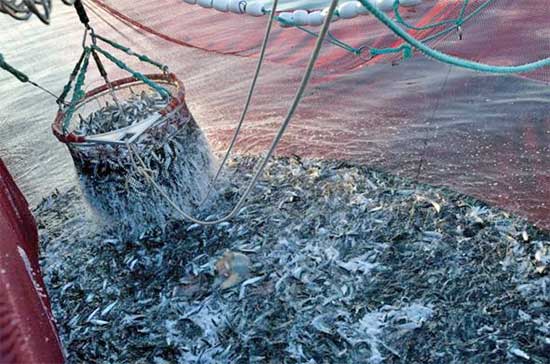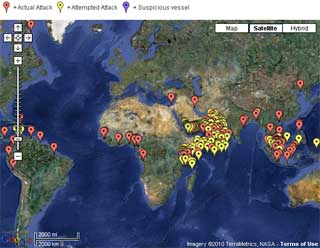R:
Indeed, the impact of warming seas on fish stocks is actually causing an increase in pirate attacks.
A study of piracy hotspots in East Africa and the South China Sea found that piracy increases when fish populations decrease and vice versa.
Sea piracy is linked to the impact of global warming

According to Gary LaFree*, professor of criminology and criminal justice, after testing the hypothesis of piracy increasing when fish production decreases and vice versa, the answer is yes. "We did a multivariate analysis to see if the underlying theory was statistically significant and it is.
The study looked at more than 2,000 attacks in East Africa and the South China Sea over the past 20 years, and found that piracy trends were linked to the impact of warming seas on fish stocks.
In East Africa, where fish populations are declining due to warming seas, piracy rates have increased. In contrast, rising sea temperatures have had the opposite effect in the South China Sea. There, fish populations have increased and piracy rates have decreased.
Indeed, when fish production increases, it can contribute to the economic stability of fishing communities. Increased fish stocks mean more resources available to fishers, which can reduce tensions and conflicts related to competition for limited resources. As a result, the incentives for piracy at sea may decrease, as fishers have access to enough fish to meet their needs.
The poorest fishermen engage in maritime piracy

Fishermen, who are part of the poorest communities in the world, are targeted by criminal syndicates engaged in piracy. Thus, some fishermen fall into piracy, by necessity, depending on the evolution of fishing.
And this is not new, in the 17th century during the golden age of maritime piracy, unemployed sailors and fishermen too poor to live from fishing became pirates and went to sea to launch attacks to plunder commercial ships.
Today, it still works the same way, with the added factor of global warming..
Bo Jiang, an assistant professor at the University of Macau's Faculty of Social Sciences, said, "I grew up in Singapore, there are many fishermen in the nearby waters who are known as 'pirates-in-waiting.'".
The link between warming seas, fishing and pirate attacks is significant, even after taking into account other factors such as economic stress, political situation, armed conflict, private security guards on board ships and local political corruption. This study also raises questions about how to help fishermen.
Climate change will accelerate, inexorably leading to an increase in maritime piracy
Thus, according to the results of this study, as sea temperatures continue to rise for the foreseeable future, combating piracy in East Africa will become increasingly difficult.
Piracy costs the shipping industry $9 billion a year and is a major security threat. Approximately 90% of the world's trade is transported by sea.
Gary LaFree is a professor of criminology and criminal justice at the University of Maryland and one of the co-authors of the paper published in the American Meteorological Society journal, Weather, Climate, and Society (WCAS)
Bo Jiang is an assistant professor in the School of Social Sciences at the University of Macau and lead author of the study.


 French version -
French version -